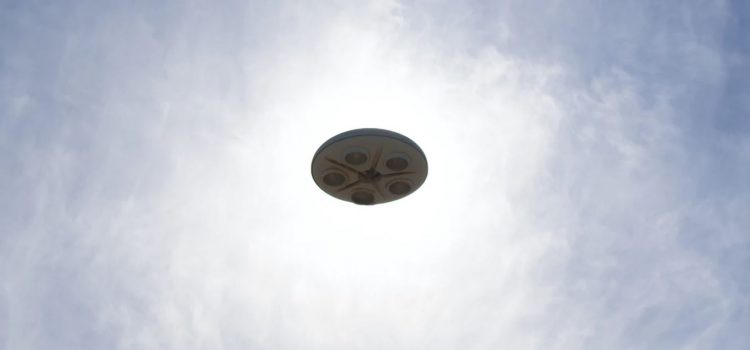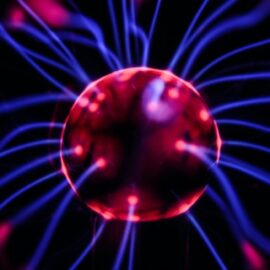
This is a free excerpt from one of Shortform’s Articles. We give you all the important information you need to know about current events and more.
Don't miss out on the whole story. Sign up for a free trial here .
Do scientists believe in aliens? Why do recent whistleblower claims about extraterrestrial spacecraft, alien remains, and government coverups sound so unbelievable?
Many people weren’t sure what to think of a military whistleblower’s claims that the US government has recovered the spacecraft—and remains—of extraterrestrials. The news provoked excitement among UFO enthusiasts, but much of the public responded to the news with a shrug.
Keep reading to learn about the whistleblower’s claims and whether or not scientists believe in extraterrestrials.
Whistleblower Says the Government Has UFOs
When it comes to extraterrestrial life, Americans have long suspected that the government knows something the rest of us don’t. We’ll explore how this belief—along with eyebrow-raising accounts of UFO sightings or alien abductions and campy science fiction depictions of aliens—often makes it difficult to have a serious conversation about whether intelligent life exists elsewhere in the universe. And why many scientists believe in aliens.
Grusch’s Story
In July, former military intelligence officer David Grusch told a House oversight subcommittee on national security that the US government has spent decades recovering, studying, and reverse-engineering vehicles of unknown origin. He also claimed that the government has recovered nonhuman biological matter from these crash sites.
Grusch explained that he hasn’t personally seen alien vehicles or remains. But he based his testimony on the stories of more than 40 witnesses interviewed during his tenure at the Pentagon’s Unidentified Aerial Phenomena (UAP) Task Force (UAPTF), established in 2020.
We’ve Heard This Story Before
Grusch’s testimony followed a familiar pattern: A former government official alleges that vehicles of undetermined origin have crashed on Earth and that the government has evidence. He declines to make public any evidence to support his claims. He may even remind observers that he can’t legally share classified information in a public setting.
Since the 1947 discovery of a military balloon’s crash debris at Roswell, New Mexico (and the government’s incomplete explanation of the incident), many Americans have become convinced that the government won’t tell them the truth about aliens. But SSETI Institute astronomer Seth Shostak contends that a visit from aliens couldn’t be kept secret. He believes that evidence substantiating an encounter would have to be made public.
Scientists Believe Intelligent Life Likely Exists Elsewhere in the Universe
Scientists often frame the question of whether extraterrestrial life exists as one of math. Astronomers estimate that the Milky Way contains 100 billion planets, around 2 billion of which might be similar to Earth. It’s not controversial to suggest that intelligent life might exist elsewhere in the universe.
So They Might Be Out There—But Have They Been Here?
While many scientists are working to discover whether extraterrestrial life is out there, they’re much more skeptical about the idea that aliens have touched down here on Earth. One scientist who has crossed into this borderland between mainstream science and its fringes is Harvard astrophysicist Avi Loeb. Loeb has attracted controversy in his field by advocating the idea that extraterrestrials—or at least their spacecraft—have undertaken interstellar travel to visit Earth.
According to his critics, Loeb has drawn conclusions and proposed “wild” ideas that make exciting headlines but lack evidence to back them up. He founded the Galileo Project to look for extraterrestrial technology and collect data to study UAPs. Yet some scientists say that Loeb has skewed public perception of what we know about extraterrestrial life, which is very little.
Conspiracy Theories Distract From the Science
Questions that many scientists consider the wrong ones animate much of the public interest in extraterrestrial life. Observers trace the origin of our current lore around UFO sightings and alien abductions to the postwar years. Since then, grainy photos of the sky, lurid stories of alien abductions, and breathless theories about government conspiracies have proliferated.
Some observers suggest that the excitement among ufologists and alien enthusiasts following Grusch’s testimony says more about us—and our readiness to accept conspiracy theories—than it does about the likelihood that aliens are flying through our atmosphere or crash-landing on Earth.
For 50 years, the US government maintained that UFO sightings were hoaxes or hallucinations and didn’t merit serious study. It didn’t begin speaking openly about UAPs until 2017, when news broke that the military had established the Advanced Aerospace Threat Identification Program. In the following years, the military acknowledged that its pilots had encountered unexplained objects. But that disclosure prompted some observers to speculate that such an admission might provide convenient cover for secret weapons programs.

Want to fast-track your learning? With Shortform, you’ll gain insights you won't find anywhere else .
Here's what you’ll get when you sign up for Shortform :
- Complicated ideas explained in simple and concise ways
- Smart analysis that connects what you’re reading to other key concepts
- Writing with zero fluff because we know how important your time is






